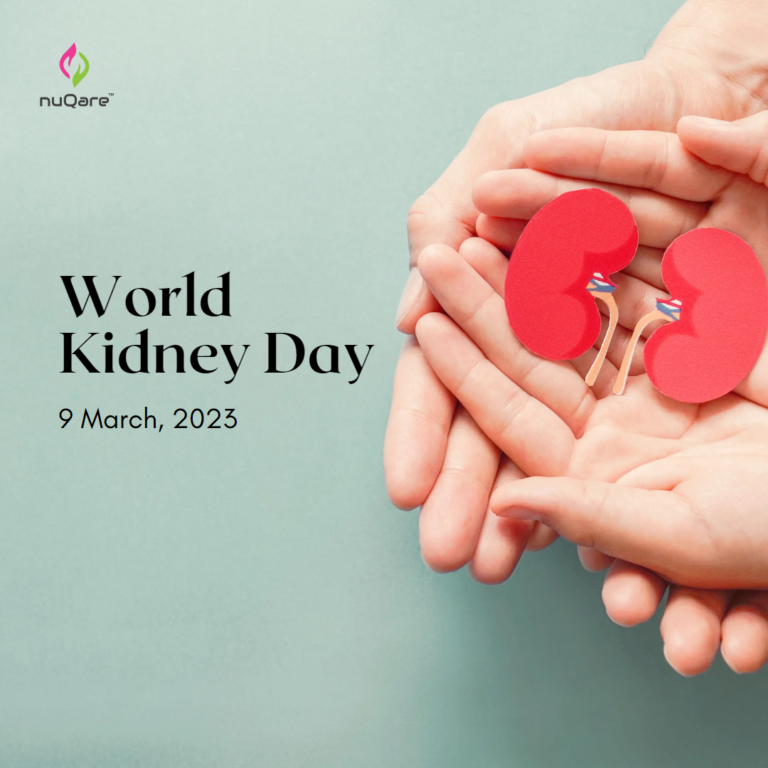As we celebrate World Kidney Day, it is important to highlight the significance of early detection when it comes to kidney cancer. Kidney cancer affect millions of people around the world, with many unaware of their condition until it is too late. However, with early detection and treatment, the progression of kidney cancer/diseases can be slowed down or even halted, improving the quality of life for those affected.”Kidney Health for All – Preparing for the unexpected, supporting the vulnerable” is the theme for World Kidney Day,2023.
Unfortunately, kidney related diseases often go undetected until it has progressed to an advanced stage, when symptoms such as fatigue, swelling in the legs, and difficulty urinating become apparent. By this time, irreversible damage may have already been done to the kidneys.Kidney cancer develops when cells in your kidneys change and grow out of control. People with kidney cancer may notice flank pain, high blood pressure, blood in their pee and other symptoms. Kidney cancer treatments include surgery, chemotherapy and radiation therapy. As with all cancers, early detection is key for successful treatment, which is why it is so important to be proactive about kidney health

1-The Importance of Early Detection
Early detection of kidney disease is critical for effective treatment and management. Unfortunately, many people with kidney disease may not experience any symptoms until the disease has progressed to an advanced stage. This is why routine kidney function tests are important, especially for those at high risk, such as individuals with diabetes or high blood pressure.
2- Kidney Cancer
There are several types of kidney cancers, each with its own causes and symptoms. The most common ones include:
- Renal cell carcinoma (RCC): Representing 85% of all cases of kidney cancer in people, RCC is the most prevalent type. Although it can impact both kidneys, renal cell carcinoma typically manifests as a single tumor in one kidney. Your kidney’s tubules’ lining cells are where cancer first appears (tiny tubes that return nutrients and fluid back to your blood). The most common type of RCC is clear cell renal cell carcinoma (ccRCC).
- Transitional cell cancer: Transitional cell carcinoma accounts for 6% to 7% of all kidney cancers.6% to 7% of all kidney tumors are transitional cell carcinomas. This cancer typically starts where your ureter connects to the main part of your kidney. This area is called your renal pelvis. Transitional cell carcinoma can also occur in your ureters or bladder.
- Renal sarcoma: Only 1% of instances of kidney cancer are renal sarcoma, making it the least prevalent type. If left untreated, it can spread to neighbouring organs and bones.
- Wilms tumor:An estimated 5% of renal cancers are caused by it. This is the most common type of kidney cancer in children
3- Prevention and Treatment
Prevention and treatment of kidney cancer involve lifestyle changes(Quitting Alcohol), medications, and sometimes surgery. It is important to maintain a healthy diet and exercise regularly to reduce the risk of developing kidney diseases. Medications such as blood pressure and diabetes drugs can also help manage kidney cancer.
4-The Importance of Kidney Donation
For individuals with advanced kidney diseases, kidney transplantation may be the best option. Kidney transplantation can improve the quality of life and increase life expectancy for those affected. However, the availability of donor kidneys is limited, and there is a long waiting list for those in need of a transplant. This is why kidney donation is crucial in saving lives and improving the health of those with kidney diseases.
In conclusion, early detection of kidney diseases is crucial for effective treatment and management. Routine kidney function tests, especially for those at high risk, can help detect kidney cancer in their early stages. Prevention and treatment of kidney cancers involve lifestyle changes, surgery, chemotherapy and radiation therapy. Kidney transplantation is also an option for
those with advanced kidney diseases, but the availability of donor kidneys is limited, highlighting the importance of kidney donation. As we celebrate World Kidney Day, let us raise awareness about the importance of kidney health and early detection of kidney cancer.

